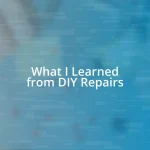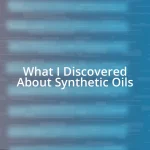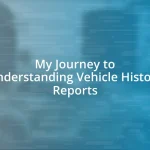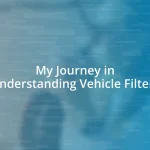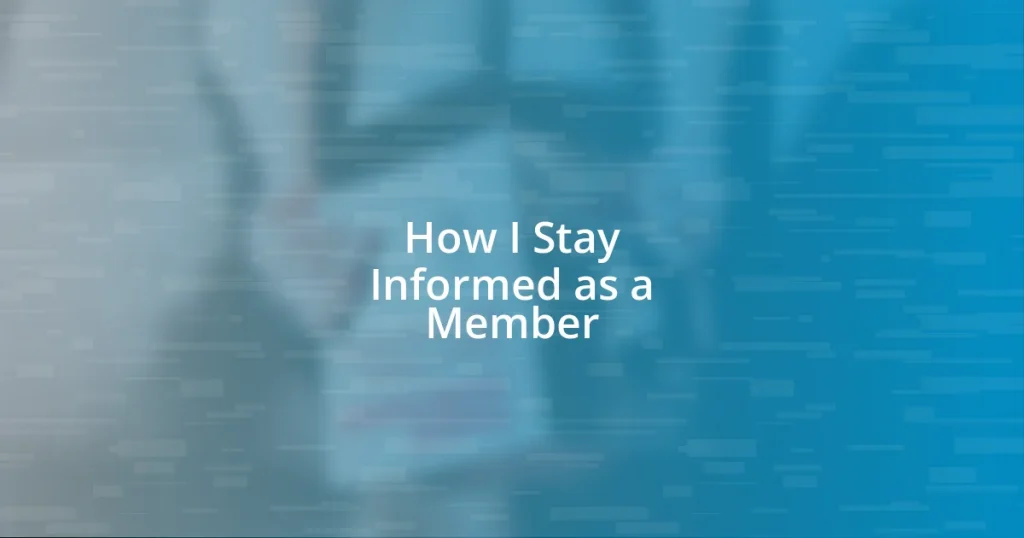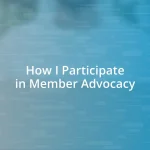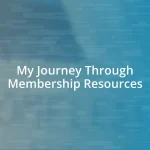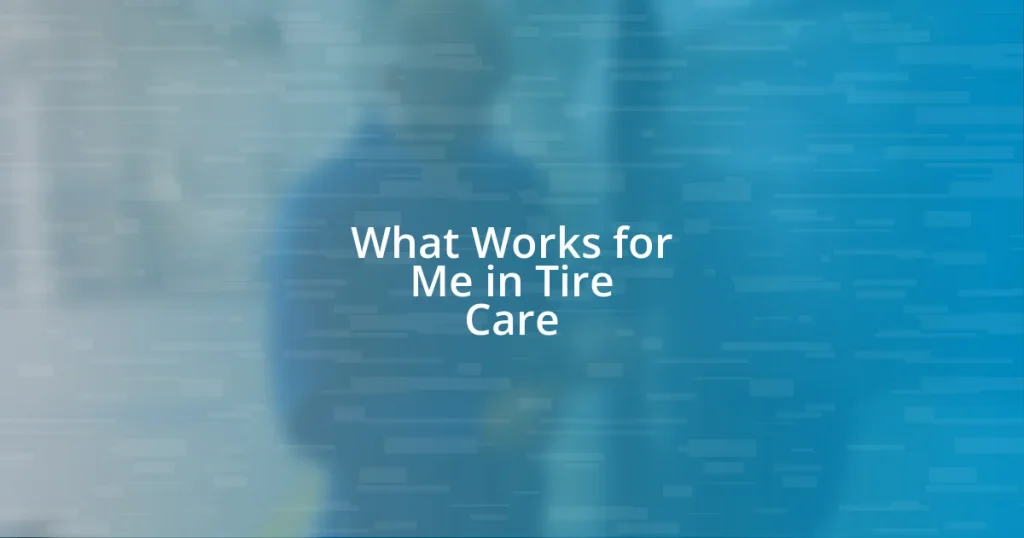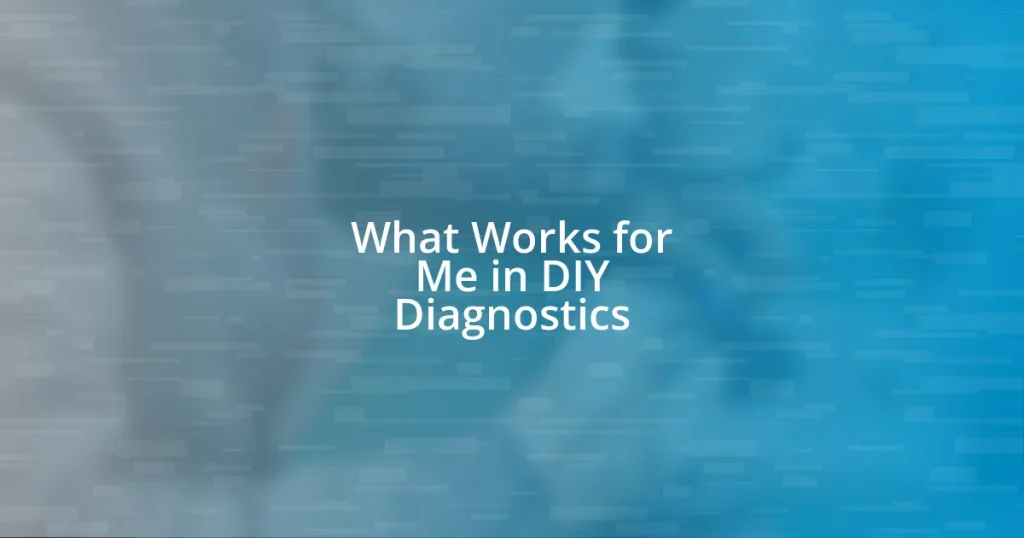Key takeaways:
- Assess the credibility of information sources by considering the author’s expertise, checking for academic backing, and ensuring the information is current.
- Utilize news aggregator tools to streamline access to diverse perspectives and engage in content sharing within communities.
- Establish a regular reading routine and evaluate information for relevance to enhance understanding and knowledge retention.
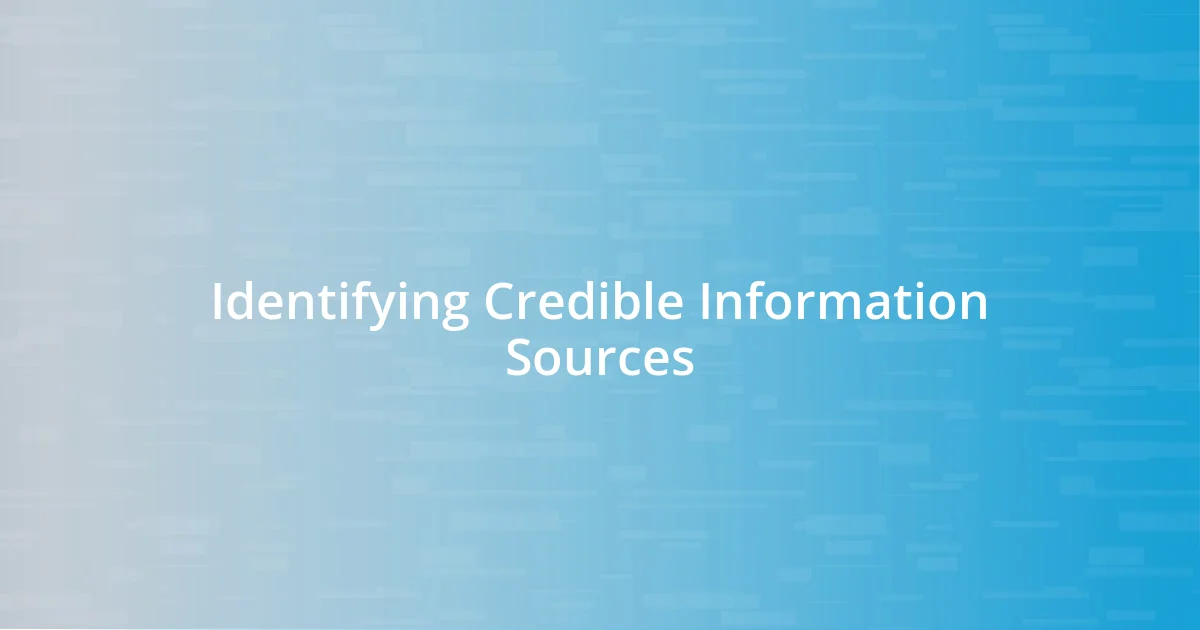
Identifying Credible Information Sources
When I search for credible information sources, I first consider the author’s expertise. It makes a big difference when I see that the writer has a solid background in the subject they are discussing. For example, I remember diving into nutrition articles and feeling assured when I found out the author was a registered dietitian. Seeing those qualifications helps to build trust, doesn’t it?
I often rely on academic journals and reputable news outlets, as they tend to have a rigorous fact-checking process. There was a time I came across a blog post filled with sensational claims about health supplements. It took less than a minute of digging to discover that they were backed only by anecdotal evidence. That experience taught me the importance of looking for studies published by respected institutions. Hasn’t that been a game-changer for how you perceive information too?
Lastly, I always check the publication date. Information can become outdated quickly, and I find that some older articles still circulate without any updated context. I once read a piece about a popular technology that claimed it was the “next big thing,” but it was from five years prior and now seemed almost obsolete. Staying mindful of the timeliness of information can prevent me from being misled. It’s like peering through a window into the past instead of seeing what’s really happening right now.
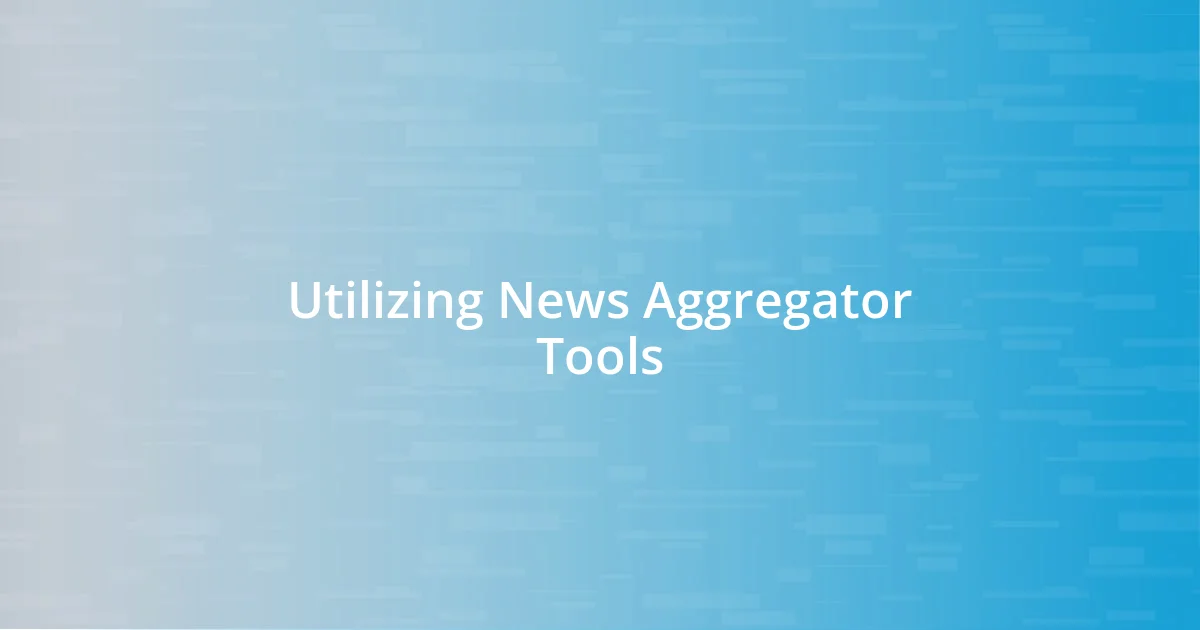
Utilizing News Aggregator Tools
Utilizing news aggregator tools is something I’ve come to appreciate in this fast-paced digital age. Instead of jumping from one news site to another, I find that these tools streamline my access to diverse perspectives. For instance, when I was following major international events last year, using an aggregator helped me pull together stories from multiple outlets, providing a well-rounded view in a fraction of the time. It was satisfying to see various angles on one platform instead of piecing them together myself.
Sometimes, I find myself overwhelmed by numerous headlines every morning. To tackle this, I prioritize using user-friendly aggregators that highlight trending news based on my interests. I remember the excitement I felt when I discovered how customizable these tools were; it was like having a personal news assistant that filtered through the noise for me. When a breaking story erupted in my area, my aggregator delivered updates in real time, ensuring I was well-informed and could engage with my community immediately.
In my experience, the best news aggregator tools don’t just compile content; they allow me to engage with articles and share them easily. The sense of community I gain from discussing shared articles with friends can be energizing. I recall a lively debate sparked by an article I had found through an aggregator that none of my friends had seen yet. We dissected the perspectives offered and it deepened our discussions, turning a simple gathering into a thought-provoking exchange.
| Aggregator Tool | Key Features |
|---|---|
| Feedly | Customizable feeds, RSS support |
| Magazine-style layout, social sharing | |
| Google News | Personalized headlines, trending topics |
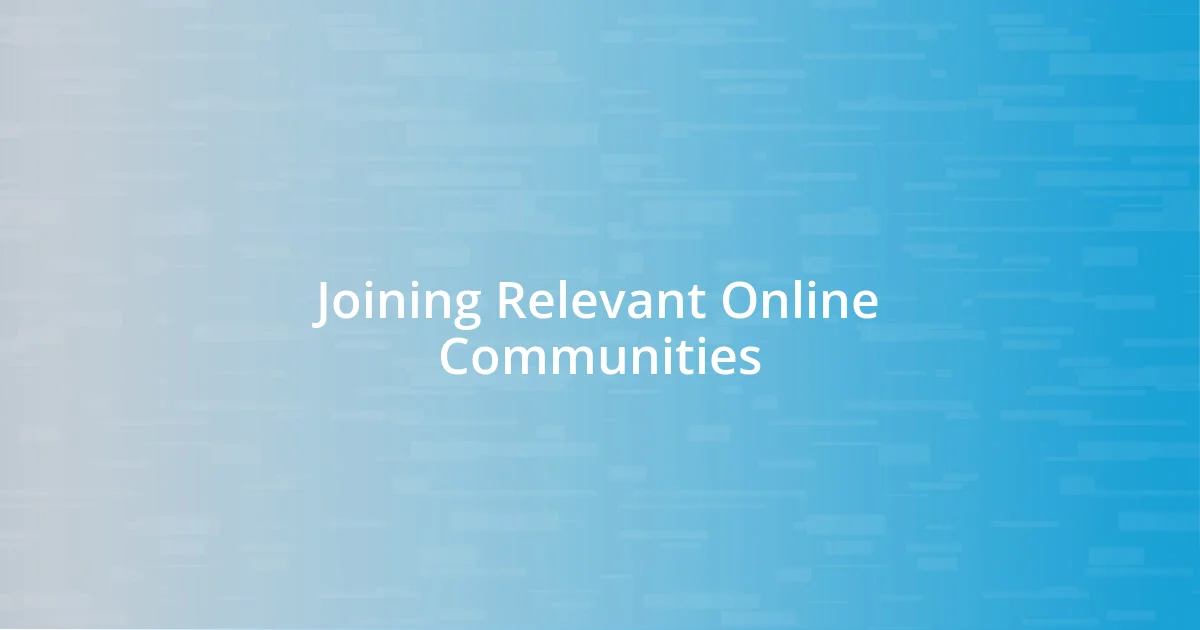
Joining Relevant Online Communities
Joining relevant online communities has been a transformative experience for me in staying informed. It’s amazing how much value I’ve gained from actively participating in spaces where like-minded individuals gather. A few months ago, I stumbled upon a forum dedicated to sustainable living, and the insights shared there opened my eyes to practices I hadn’t considered before. Engaging in ongoing discussions made me feel more connected to a larger movement, which fueled my passion for making environmentally conscious choices.
Here are a few platforms that have been particularly beneficial for establishing good connections:
- Reddit: Subreddits offer topic-specific discussions and real-time updates on virtually anything.
- Facebook Groups: These provide a more personal touch, allowing for interaction and community-building.
- Discord Servers: A newer way of connecting on real-time discussions or webinars.
- LinkedIn Groups: Professionals share valuable insights related to their fields, fostering networking and collaboration.
Each of these communities has enriched my knowledge base and allowed for rewarding interactions with individuals who share my interests. What truly enhances this experience for me is the reassurance that I’m not navigating the sea of information alone.
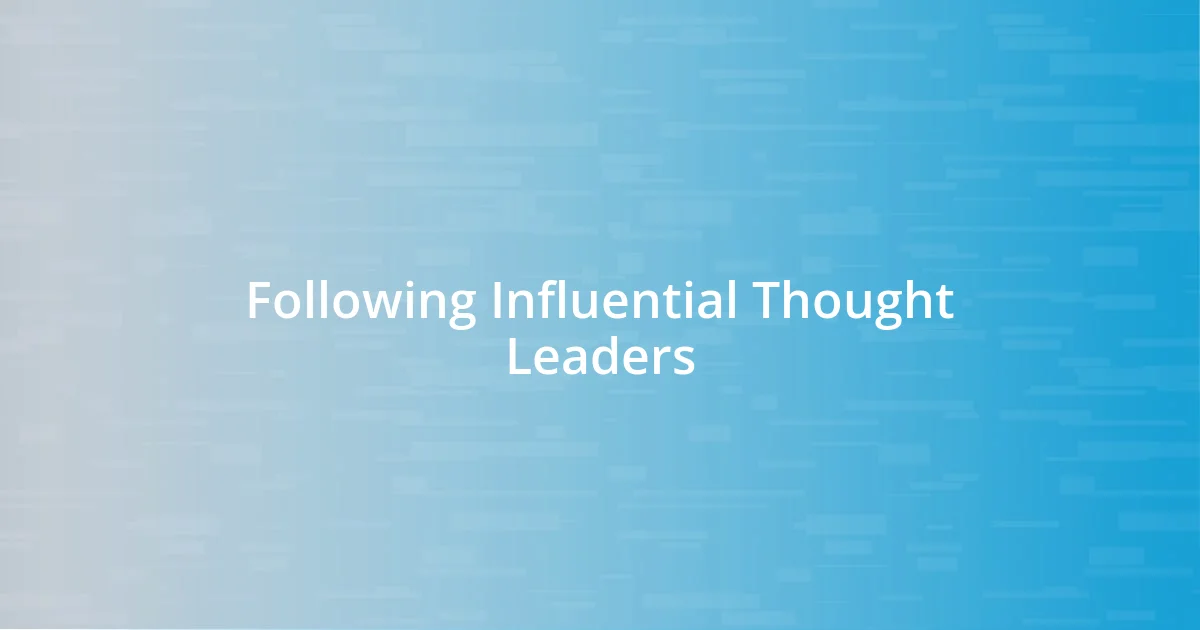
Following Influential Thought Leaders
Following influential thought leaders has profoundly shaped how I absorb information. I still remember the first time I followed an expert in my field on social media. Their thoughtful commentary on current issues was eye-opening, and I found myself reflecting on their perspectives long after reading their posts. Just like a mentor guiding you through complex concepts, these thought leaders distill intricate ideas into digestible insights.
Engaging with their content often prompts questions in my mind. For instance, when I read an article from a prominent analyst, I ask myself how their viewpoints align with or challenge my own beliefs. This kind of critical engagement not only deepens my understanding but also drives me to explore topics more thoroughly. I often find myself researching concepts they’ve mentioned, leading me down fascinating rabbit holes that enrich my knowledge landscape.
Crafting a curated list of influencers has truly transformed my learning journey. I’ve discovered that the right thought leaders can open doors to discussions I never imagined I could be a part of. Their posts inspire not just educational growth, but genuine curiosity about the world—like the time I participated in a virtual panel discussion after following an expert in social innovation. That experience not only expanded my understanding but also connected me with other passionate individuals who share my interests. How has following thought leaders changed your perspective?
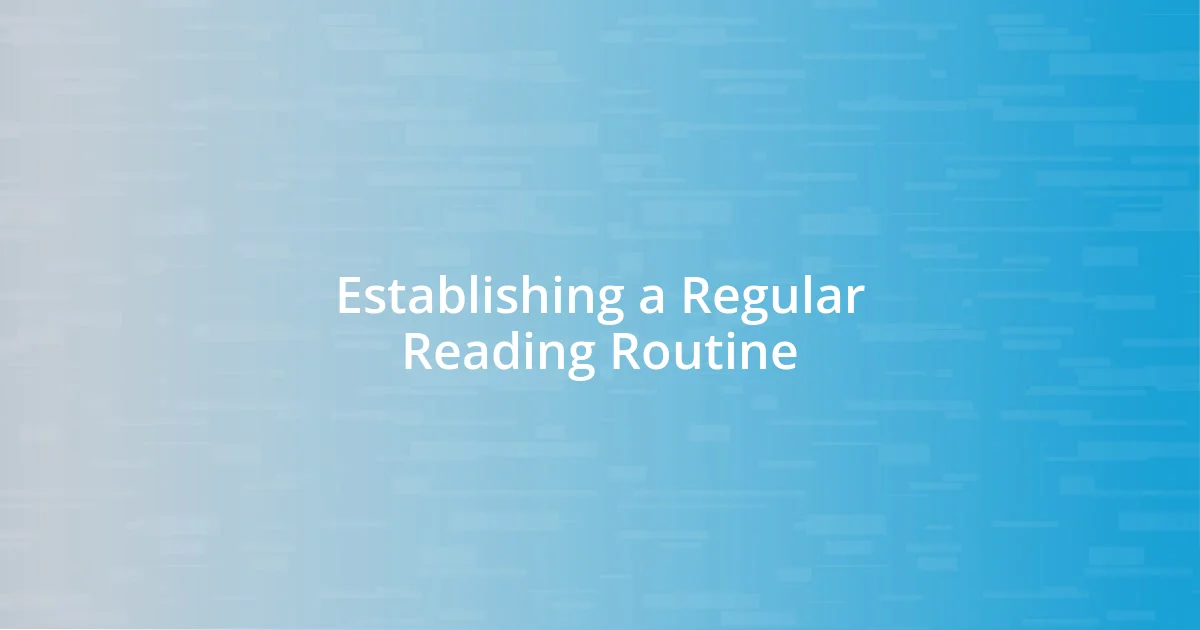
Establishing a Regular Reading Routine
Establishing a regular reading routine has been a game changer for me. I find that dedicating just 15 to 30 minutes daily to reading helps me stay updated without feeling overwhelmed. Using a specific time in my day—often right before bed—has allowed me to create a comforting ritual. It’s amazing how this small commitment has such a profound impact on my knowledge.
I also make it a point to diversify my reading materials. From articles and journals to books and blogs, each format offers unique perspectives. Recently, I read a compelling book on mental resilience that not only introduced me to new concepts but also encouraged me to reflect on my own experiences. How often do we come across something that shifts our thinking entirely? For me, that moment felt like a revelation.
To keep things interesting, I occasionally switch up my reading environment. Whether it’s a cozy corner in my home or a vibrant café, changing my scenery keeps my mind fresh and engaged. I’ve noticed that when I’m in an inspiring setting, I absorb information more effectively. Have you ever tried reading in a new place? The shift in atmosphere can truly elevate your entire reading experience.
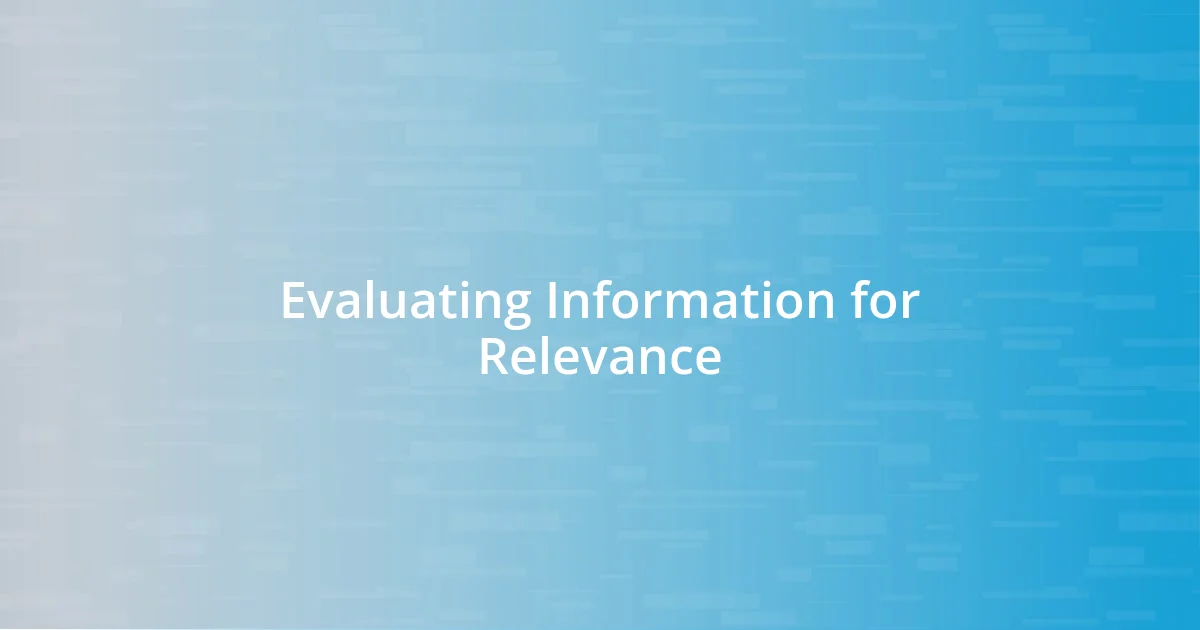
Evaluating Information for Relevance
Evaluating information for relevance is essential in a sea of content. I often find myself asking, “Does this information serve a purpose in my current learning?” For example, when I come across a statistical report, I immediately consider how it fits into my ongoing projects or discussions. That process of questioning helps me sift through irrelevant noise and focus on what truly matters.
When examining sources, I pay close attention to the author’s credibility and the publication date. I still remember stumbling upon a resource that, while interesting, was over a decade old. It sparked a great discussion, but I soon realized how outdated the insights were. Keeping track of whether the information is current is vital; this reflection helps ensure what I’m absorbing is both accurate and relevant to today’s context.
I also enjoy sharing what I’ve learned with others, which adds another layer to my information evaluation. Last week, I discussed a recent policy change with a colleague, and I was surprised at how much deeper my grasp on the topic became through that conversation. Engaging with others not only validates the information I’ve filtered but often shines a light on perspectives I hadn’t considered. How do you process information to ensure it’s genuinely relevant in your life?





